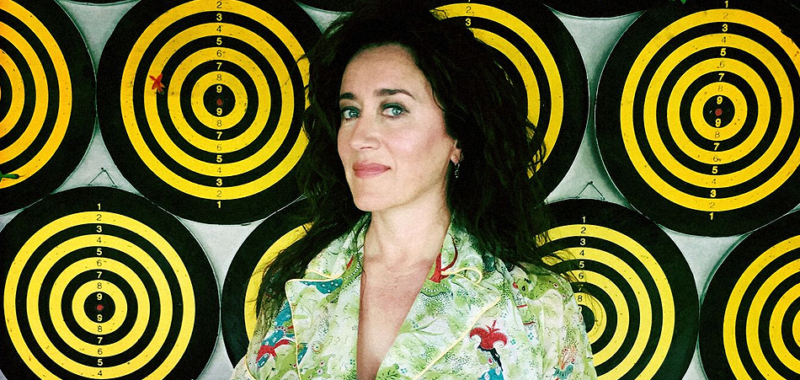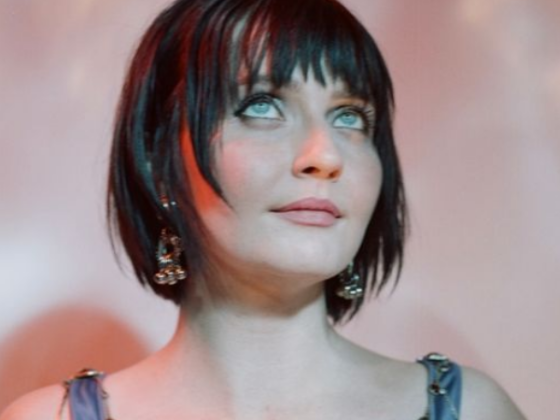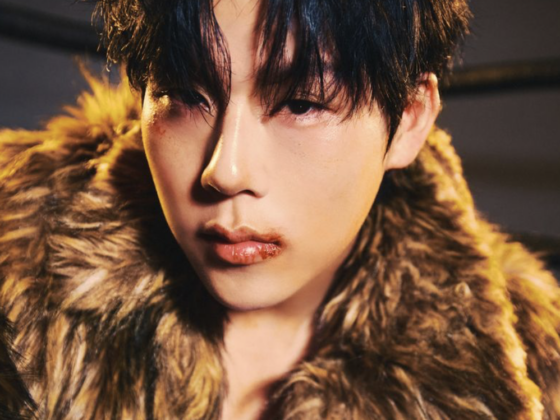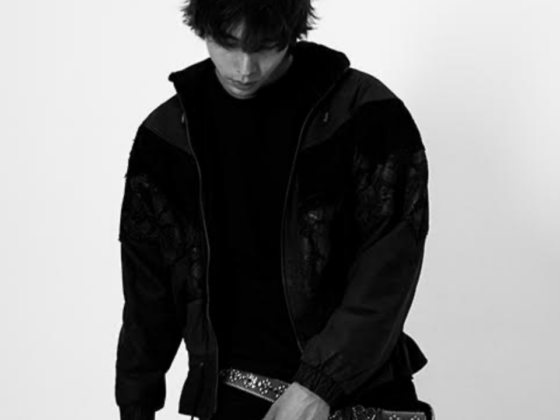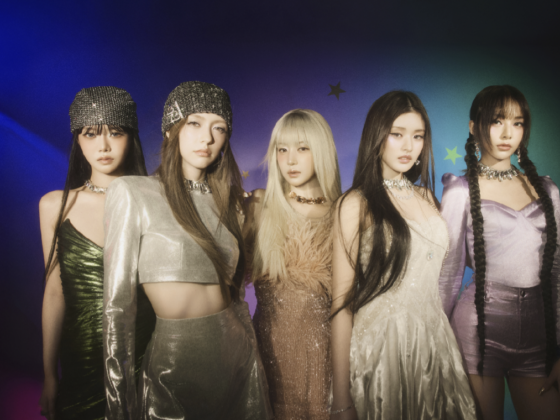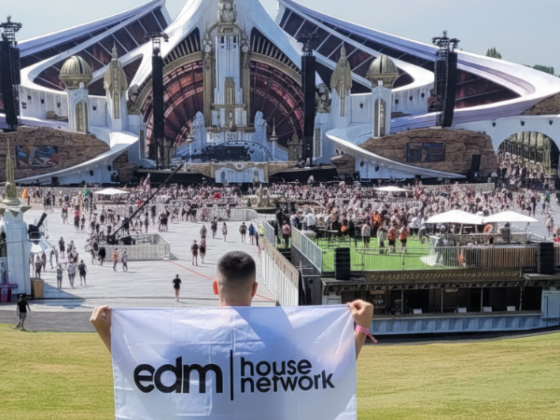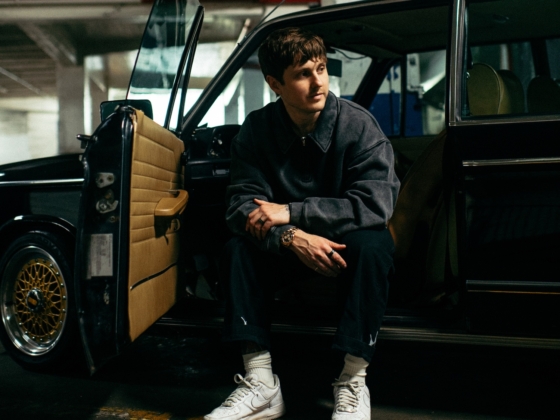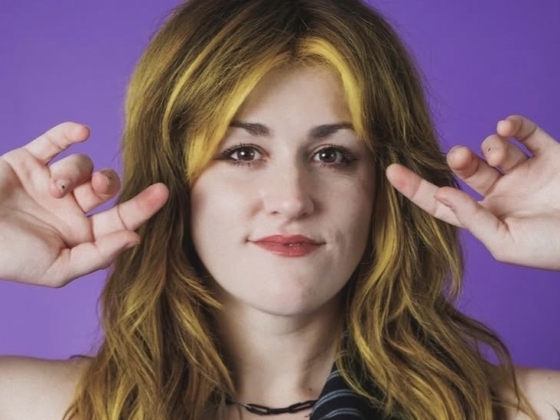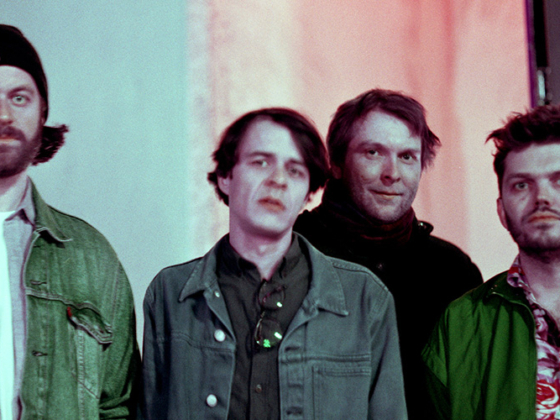Maria Doyle Kennedy has become a household name worldwide over the years due to her numerous acting roles; she was the much-beloved Mrs. S. in Space's Orphan Black, and has been slated to join the fourth season of Starz' Outlander. Acting aside, however, she boasts an incredible career in the music industry. Hot Press Magazine has called Kennedy one of Ireland's "best-kept secrets". And indeed, she is very much a musical giant, vastly talented as both a songwriter and performer. Her latest album, produced and released with her husband and long-time collaborator Kieran Kennedy, is a moving piece of work. There are a constant tension and release between the warmth of her voice and the eclectic soundscape of the instrumentation. Their record label is aptly titled "Mermaid Productions", as Maria seems to be a kind of mythic creature herself. Careful and measured but also wildly passionate, even over the phone I notice a depth to her thoughts and personality typically difficult to hear in fifteen-minute interviews. We have a friend in common; we both speak fondly of him, and she tells me of the time she took him to a concert before we launch into discussion about her album.
EARMILK: This is your first full-length studio album in a couple years — how does it feel to dive back into it?
Maria Doyle Kennedy: It's both exhilarating and terrifying, which is always the way I feel when we're about to launch something out there. It's quite an incredible thing to release a body of work that you've spent some years working on and putting yourself into. It's properly an expression of how we feel and what we see and hear. In some ways—because you're sharing it with people and hearing it for the first time with their ears—you're also putting it up for judgement. So that's the terrifying bit. And the exhilarating bit is also that you are finally going to get to share it with people. You get to tour and play it live, which is the bit of our work that we really enjoy.
EM: It's a bit of a double-edged sword I would think.
MDK: Yes, always. But, face your fear, I think.
EM: Talking of fear, do you get nervous touring more than you do acting?
MDK: I always get nervous gigging. I used to think when I was younger that maybe I'd grow out of it. At the very beginning when I started touring, I used to throw up. It was just awful! I don't throw up anymore but I get very nervous. I've just come to accept it, really. That feeling of panic is an awful feeling, but only once or twice in my life have I not been very nervous, and I haven't been particularly good. So I think there must be some kind of reckoning with it. It must just get your adrenaline up to the place that makes you ready for what you need to take on and really go for it and make yourself vulnerable. So I've just accepted that it's going to happen and I'm not going to like it, and then once I'm two songs in, I'm fine. It always takes me two songs to plant my feet, know where I am, and then I'm fine. Then I'm the happiest place I could be in the world. I don't think when I'm singing, I'm just there and we're all in it together.
EM: Was there anything behind the decision to self-title the album?
MDK: [laughs] Oh, Tanis. What a shameful, shameful admission that we just could not agree on what to call it. We went back and forth over so many titles! And we just could not agree on it. There was something just fractionally off about every one for one of us. And then Kieran said, "why don't you just call it your name? You've never had an eponymous album." So, that's what we did. I wish I had a more elaborate story to tell you, but that's the truth.
EM: No, I have the same issue when I'm writing. It's hard to title things. It's difficult to sum up work that means so much in one phrase or word. And much of this album, in particular, feels very political—you mention Trayvon Martin, you have a song called "Pride"—do you think it's necessary for art to be political nowadays?
MDK: I mean, you can't say to everybody "you must make political art". Everybody's "stuff" comes from different places, obviously. But I suppose I finally felt that I had the words to address things in that way. I've tried before to write about these things and I couldn't do it properly, I just always thought it was clumsy. There was something wrong, it was kind of righteous—which is never the right way to go about it. But these songs came very naturally to me. Maybe that's because I've had more experience as a songwriter, but I just felt absolutely compelled to write them. We were spending more time in North America and that's when everything happened in Ferguson and Sandra Bland was killed, and Eric Garner, and I was just so upset about it. I thought about it from the perspective of a mother who's trying to teach her child about the world, and she's had to tell her children extra things that I haven't had to tell mine, through nothing that should have to be changeable. Through circumstances, their situation facing the world would be different from many others, and it just seemed so deeply flawed and unfair.
EM: Do you have a specific songwriting process? Or does it just kind of come to you?
MDK: We have several different ways of writing songs. I don't really play an instrument. I play enough piano to work out melodies for myself, but I don't play it very well and I don't play any other instruments. One way that Kieran writes songs—he's one of those really annoying people who can figure out a way to get a noise out of any instrument—
EM: Aren't you so jealous of those people?
MDK: —I am very jealous of that, I have to say! [laughs] But often he will compose music and make up little soundscapes and send them to me, and I will be inspired by that and write melodies and words to go with that. Sometimes I write little melodies in my head and sing them into my phone. I'm sort of percolating all the time, and things people say or that I observe go round inside my head until I make them into a song. Starting songs is always easier than making them right, too. The beginnings of things are so exciting, and the inspired bit of what we do. And when you have to really craft them into a whole story with a narrative, that's the hard work. Sometimes I want to run away from that and start some new songs. That would be the escapist in me.
EM: You've collaborated with some amazing musicians as well—is there anyone you haven't worked with yet who you'd jump at a chance to work with?
MDK: I would give my left eyeball—or right. Or any of my eyeballs, really—to work with a singer called Mimi Parker, who's in a band called "Low". I just absolutely worship her, and I hope I will get to do something sometime. I have to say that recording a song with John Prine was this little sort of present that came to us. He's such an extraordinary man and an extraordinary talent, and for him to say "I would love to record one of your songs with you," was an incredible thing to happen. It was a great encouragement, you know? We run our own record label too, and sometimes it's hard to keep going, so for all of that to sort of come into play was quite something. It gives you great energy to continue and feel that you're on the right path.
EM: Of course! So when I was prepping for this interview, I re-watched The Commitments. And I feel it would be horribly remiss of me not to ask about it. Can you talk about what it was like to experience working with those people at such a young age and in something that became such a cult hit in Ireland?
MDK: Well I don't ever really talk about it, because I think if you're talking about the past you're kind of dying, as opposed to talking about the future. It's over half my life ago…whenever you're doing anything, you're just in it. You're just in the experience of it. I don't ever expect anything, except what is happening at the time. I don't look forward and I don't look back. I had no expectation at the time of what would happen, and then I had no thoughts about it afterward. It was my first acting experience, so that was kind of great, and I made life-long friends, but I don't ever think about it beyond that.
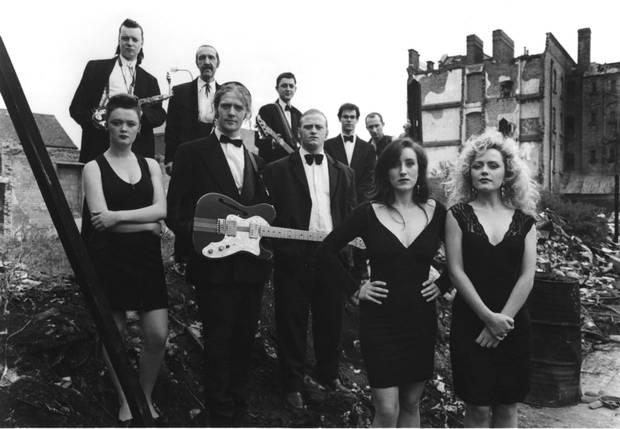
EM: Fair enough! My last question—we already talked about this a little bit—but if you could sum up the album in a thought or a quote, what would it be?
MDK: Oh my gosh, that's so hard.
EM: I know, I'm so sorry.
MDK: The main thing we try to do is tell stories with beautiful melodies and interesting music. A friend of mine recently called the album—do you know the term "banger?" do you use that over there?
EM: Yes I know that term, I think I use it a little too much sometimes.
MDK: [laughs] Well she called the album "a collection of sly bangers". She said, "they're bangers but they just kind of creep up on you, they're mysterious earworms!" I was thrilled with that description, I just thought that was the best thing I've ever heard. I'd be happy with that.
EM: No kidding! Well, thank you so much for talking to me, Maria.
MDK: You're so welcome! I love the name of the blog. I love "EARMILK". I thought it sounded like nourishment for your ears. I thought it was a beautiful way to think about music. Please pass on my great joy at the title!
Live Dates:
Connect with Maria Doyle Kennedy: Website | Twitter | Spotify

